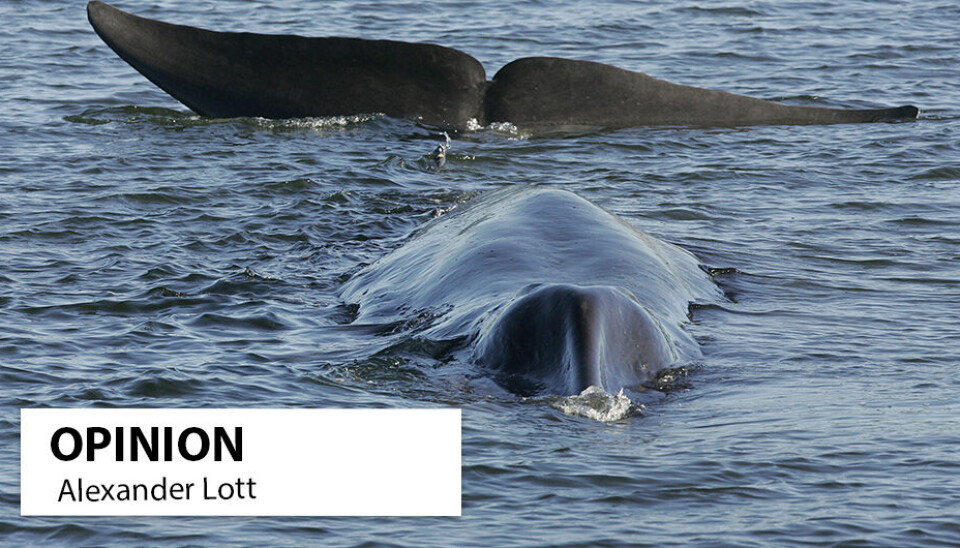Opinion:

Norway’s practice of blowing up WWII sea mines is deadly for marine mammals
OPINION: Norway should stop detonating naval mines in sensitive sea areas. Instead, it could promote the use of alternative and cost-effective mine clearance techniques that have minimal effects on the marine environment.
In the Second World War, narrow sea areas such as fjords and straits suffered the most from mine warfare. Many Norwegian fjords were mined in the war and these old mines still cause danger for shipping and other human activities at sea. In addition to disposing naval mines from the Norwegian maritime area, the Norwegian Navy has made a strong contribution to the work of the NATO Mine Countermeasures Group, including in the Baltic Sea.
The detonation of a single naval mine can cause irreversible and often fatal damage to the auditory organs of marine mammals even if they are located at the other end of a fjord or strait.
Countermining operations are necessary for ensuring the safety of shipping or clearing the area for construction activities, for example, the laying of submarine cables and pipelines, establishment of windfarms and bridges.
However, these operations cause significant noise pollution in the marine environment when the mines are detonated. This proves deadly for marine mammals even if they are many kilometers away from the explosion.
Norway could show an example by stopping blowing up naval mines in sensitive sea areas. Instead, the Norwegian Navy can use alternative and cost-effective mine clearance techniques that have minimal effects on the marine environment.
Deadly Practices
States carry out naval mine detonations in some of the world’s most fragile marine environments. This shows negligence towards the problems that underwater noise causes to marine wildlife. Marine species are defenseless against sudden and intensive noise pollution in the marine environment that results from mine detonations.
The detonation of a single naval mine can cause irreversible and often fatal damage to the auditory organs of marine mammals even if they are located at the other end of a fjord or strait. For marine mammals, hearing is vital.
Researchers have estimated that the recent detonations of 88 naval mines in the Netherlands’ maritime area in just one year caused about 1000-5000 whales to permanently lose their hearing.
The small whale species of harbor porpoise is particularly vulnerable to underwater noise. Scientists have found that a harbor porpoise may permanently lose its hearing even if it is many kilometers away from the epicenter of a mine explosion.
In the Gulf of Finland where tens of thousands of naval mines still remain from the two world wars, a detonation of a naval mine causes underwater noise pollution even 23 km away.
Destruction in Nature Conservation Areas
In 2019, a mine clearance operation was carried out in the Fehmarn Belt, a strait located between Germany and Denmark. The clearance operation was conducted close to the Fehmarn Belt nature conservation area that is part of the EU Natura 2000 network, the Baltic Sea particularly sensitive sea area and a marine protected area designated under the Helsinki Convention. The Fehmarn Belt area has been also granted protection under the 1992 Convention on Biological Diversity due to its significance for migratory aquatic species, such as the harbor porpoise.
Following the countermining operation in the strait, 41 harbor porpoises were found dead. The German Federal Agency for Nature Conservation concluded that underwater explosions served as one of the main causes of deaths.
In the Baltic Sea, it is a critically endangered whale species of which less than 500 have remained. This incident shows that even one of the world’s strictest multi-layered legal framework to protect local marine environment in the Fehmarn Belt did not prove rigorous enough for preventing the destruction of sea life caused by mine detonations.
Need for Policy Change
In the practice of the German Navy, naval mines are detonated in the sea only where it is not possible to use alternative measures, such as the displacement of mines to shallow waters or land for detonation or neutralization. Also, the Norwegian Navy uses many precautionary measures to avoid causing too much harm for the marine environment during countermining operations.
For example, in common practice the detonation of naval mines and other maritime industrial activities is prohibited in a sensitive sea area during the time when protected species breed or are particularly vulnerable to external factors in the first phases of raising their offspring.
Outside that timeframe mine detonations are generally permitted. But even then countermining operations include the use of mitigation measures for significantly decreasing the spread of underwater noise and other contaminants.
Still, as the Fehmarn Belt incident shows, the detonation of naval mines has deleterious effects on marine organisms even if states make use of mitigation measures. This needs to change. As far as possible, Norway should stop detonating naval mines in sensitive sea areas in peacetime.
Alternatives
Norway can use alternative techniques for clearing seas of naval mines, for example deflagration. In the case of deflagration, the main charge of a mine is neutralized by means of using a slow burning process. Preliminary research for the United States Army showed already a couple of decades ago that deflagration offers an effective, safer, and less expensive means for clearing land mines.
Unfortunately, the application of this technique to clearing naval mines has so far been under-explored.
Researchers have recently concluded that, when applied to naval mine neutralization, the use of deflagration would have minimal effects on the marine environment as compared to the common practice of detonating mines. But this technique is not yet familiar within the sector that regulates or carries out countermining operations.
This shows the importance of raising awareness about the existence of alternatives to the dangerous habit of blowing up mines in sensitive sea areas.
(This research was recently published in an open access article in Marine Policy.)
FURTHER READING:
Share your science or have an opinion in the Researchers' zone
The ScienceNorway Researchers' zone consists of opinions, blogs and popular science pieces written by researchers and scientists from or based in Norway. Want to contribute? Send us an email!





























